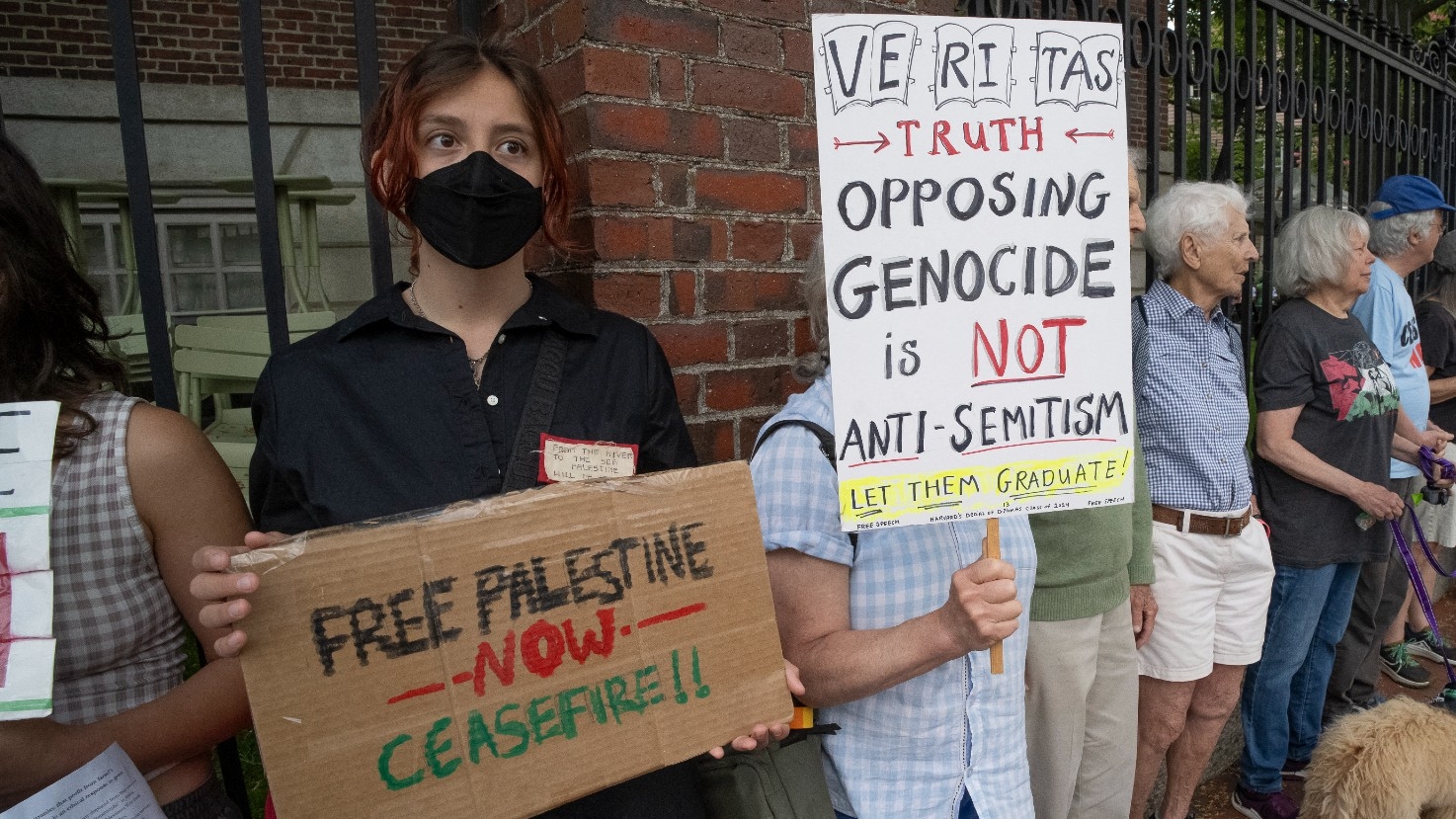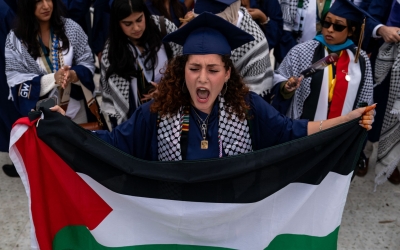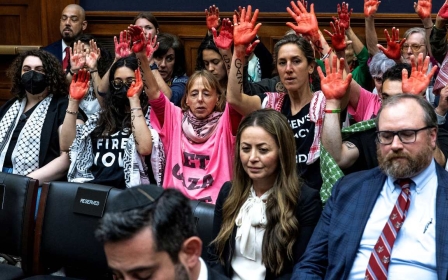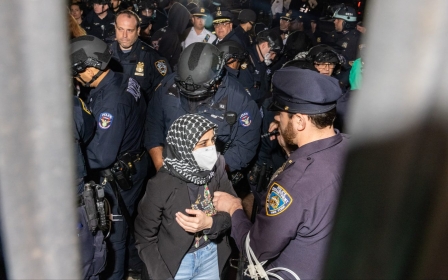'Erasure': Harvard's reports on Islamophobia, antisemitism criticised by Palestinian, Jewish students

The release of two studies on antisemitism, Islamophobia and anti-Palestinian bias at Harvard University has been slammed by the school's pro-Palestine students, who say their main demand of divestment from Israel's war on Gaza was left out of the study.
The studies were the results of two separate task forces commissioned by Harvard: one focused on antisemitism, and the other focused on Islamophobia and anti-Arab sentiment on campus.
Both task forces held listening sessions with students to try to understand what their concerns were, as Israel's devastating war on Gaza led to an outpouring of pro-Palestine protests at the school, with the student protesters' primary demand being that the university divest its financial stakes in companies profitting from the war.
The task force on anti-Muslim and anti-Arab bias stated students, faculty and staff had expressed a "deep-seated sense of fear", and added that pro-Palestine members of the university stated they had faced racism, including being referred to as "terrorists".
Participants of this listening session included Muslim, Arab, Black, South Asian and Jewish students and faculty.
New MEE newsletter: Jerusalem Dispatch
Sign up to get the latest insights and analysis on Israel-Palestine, alongside Turkey Unpacked and other MEE newsletters
Unlike the task force on antisemitism, which offered clear recommendations on how to accommodate Israeli and pro-Israel students on campus, the task force on anti-Muslim and anti-Arab bias said it would "dedicate the summer to conducting research into the historical, political and sociological origins of anti-Muslim, anti-Arab and anti-Palestinian bias on campus".
Harvard's pro-Palestine community lambasted the task force, calling it tone-deaf.
"In all of the 'listening sessions' I have been to with the task force, the largest concern raised was Harvard's complicity in every Israeli massacre against Palestinians," Mahmoud al-Thabata, a Palestinian sophomore and organiser with the Harvard Undergraduate Palestine Solidarity Committee, told Middle East Eye.
"None of our voices, however, were listened to as the task force's report failed to suggest divestment from the apartheid and genocidal regime."
Thabata said it's difficult to understand how Harvard can conduct this study and try to understand how to make Palestinians feel safe on campus "while investing in our own annihilation".
A spokesperson for Harvard University told MEE that the school had no further comment on the task forces.
Harvard task force 'erases anti-Zionist Jews'
The task force on antisemitism stated, matter-of-factly: "The situation of Israeli students at Harvard has been dire."
"They have frequently been subject to derision and social exclusion. Discrimination, bullying or harassment based on an individual's Israeli nationality is a gross violation of university policy and, beginning immediately, must be both publicly condemned and subject to substantive disciplinary action," the task force said.
'The task force has no comment on anti-Zionist Jewish students, like myself, who have been kicked out of Jewish spaces and harassed by their own communities'
- Harvard student
It was unclear in the published recommendations whether the task force reached out to only Israeli and pro-Israel students and faculty, and whether pro-Palestine and anti-Zionist Jewish individuals were left out of the study.
However, one Jewish student who described herself as anti-Zionist, said that she had participated in the study and her concerns of being harassed by pro-Israel students were not included in the study.
"The inclusion of the so-called dire situation of Israeli students is insulting to the idea of an antisemitism task force," the student, who asked to remain anonymous, told MEE.
"The task force has no comment on anti-Zionist Jewish students, like myself, who have been kicked out of Jewish spaces and harassed by their own communities."
The student said they felt the task force was also focused on the concerns of "one type of Jew: one who aligns themselves with the genocidal Zionist entity committing genocide in Gaza".
"By conflating being pro-Israel with being Jewish, the task force erases my identity and endangers Jews by transforming our religious identity into political hegemony."
Harvard is one of several universities in recent weeks to release findings about the treatment of Jewish and Muslim students on campus in the wake of the Gaza solidarity student encampment movement that has swept the lawns of schools across the US.
Earlier this month, the Department of Education released its findings on the subject for the University of Michigan and the City University of New York, both of which are public schools that can be subjected to federal probes unlike the private, Ivy League schools like Harvard or Columbia.
The University of California-Berkeley is also facing two separate complaints - one of antisemitic discrimination and another of discrimination against Arab, Muslim and Palestinian students.
The latter probe comes after complaints of students having their hijab ripped off and being called "terrorists" by others on campus.
Many pro-Palestine students, however, have pushed back against these types of studies, which they say paint the issue as a religious issue between Muslims and Jews and equate criticisms of Israel with antisemitism.
MEE has previously covered some of these student protests that were accused of being antisemitic, including one at the Massachusetts Institute of Technology. After reviewing video and photo evidence, including that submitted by pro-Israel students, MEE found that criticisms of Israel and calls for Palestinian liberation were being used as evidence for claims of antisemitism.
Middle East Eye delivers independent and unrivalled coverage and analysis of the Middle East, North Africa and beyond. To learn more about republishing this content and the associated fees, please fill out this form. More about MEE can be found here.





